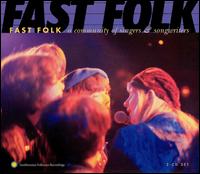 Image by Getty Images via Daylife
Image by Getty Images via Daylife
There are many reasons to self-publish your songs. Keeping 100% of the
royalties and one-time fees a song earns is just one reason. You also retain greater control over how your songs may be used and what those uses will pay. And assuming that you're highly motivated, nobody will promote your songs more than you. If, on the other hand, you were signed to a large music-publishing company with dozens of writers on staff, your songs might get lost in the crowd and never get the promotion they need to get cut. Furthermore, most song-publishing contracts specify that the
music publisher keeps all copyrights to songs covered in the
contract--even after the term of the contract expires and regardless of whether or not the company ever secures a cut for your songs.
Still, many songwriters sign with a music publisher for good reasons. It is extremely difficult and very time-consuming to make the required industry contacts with
record-label A & R (artist ans repertoire) staffers, music producers, recording artists, music supervisors, and film and
TV studios--contacts that major
publishers already have. Being your own publisher also means taking on the financial onus, which includes demo production and replication, potential attorneys' fees, inventory, postage, phone bills, printing and more. And while all that money is going out, you've got to find a way to have some coming in to pay foir all that overhead. A
songwriter signed to staff-writer deal with a publisher typically receives a monthly stipend to keep the credit hounds at bay. Even before (or despite never) getting their first cut, the staff writer earns a loving doing what they love the most--writing songs.
An experienced music publisher might also secure revenue-generating uses of your songs that you might not have thought of on your own, includingh sheet music, karaoke, video jukeboxes and musical
greeting cards. They probably already have the contacts you lack with print publishers and subpublishers. The latter collect mechanical royalties for record sales and synchronization fees for the use of songs in TV shows and films abroad. (I'll discuss licensing for various uses of songs in more detail as we move along in this series.) Many successful publishers hire influencial song-pluggers to pitch the songs in their catalog, greatly increasing the chance of getting a cut. And many a fruitful collaboration between songwriters has been facilitated by major publishers having strong networks throughout the creative community.
You might be thinking at this point, "Screw the do-it-yourself approach. Give me publishing contract." Unfortunately, it's not that easy. As a highly successful
producer and friend recently explained to me, the big publishing companies are interested in signing only songwriters who already have a track record of writing hits. Yet it's "lmost impossible" (in his words to get your first song cut--even if you have high-level industry contacts listening--without an influencial publisher or song plugger pitching you song. It's a catch-22.
Despite the sobering realities of independent song plugging, I love the
business side of music publishing. I find managing my own music-publishing company to be exciting and self-empowering. But as you'll learn, it's also a lot of work...and it WILL distract you from your creative process. Find what you do the best and do it. Find what you do the worse and get with someone that is good at what you are not good at, team up with them and just get it done. It takes a lifetime to gain a ton of knowledge, and even then you may not get the results. As in a band, team work is EVERYTHING. Name one thing in your life, you do, can do or have done by yourself.
More tomorrow...Baby Steps to take.
 Image via Wikipedia
Image via Wikipedia











